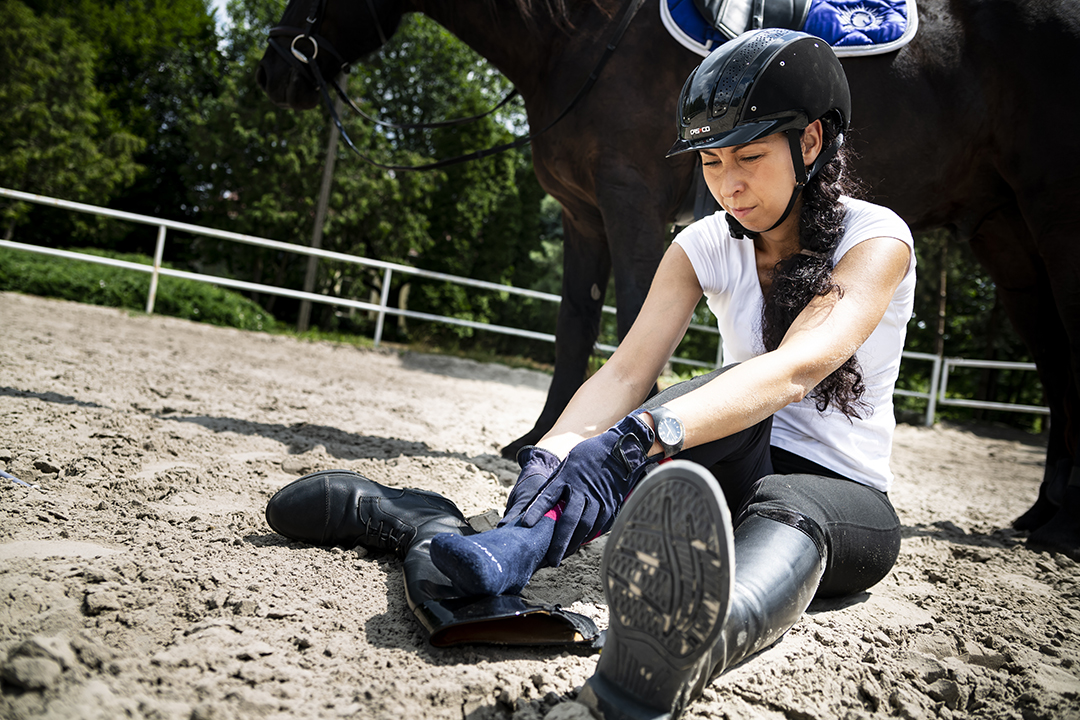A number of years ago there was a lawsuit in California that was brought by the parents of a junior (Mia Eriksson) who was killed when her horse fell on her while competing in the cross-country phase of an event at Galway Downs. Their lawsuit was initially dismissed, but they appealed and it was reinstated. This procedural turn of events led trainers and parents alike to question whether a trainer is legally responsible for the safety of a young student. As usual, there are no easy answers.
Don’t we all know that riding is inherently dangerous?
Horses are big. Kids fall off and get hurt. Such is the natural order of things and most people do understand these undisputable truths. However, the parents of the girl who was killed believe that their deceased daughter’s coach deliberately disregarded all the red flags and lied to them. According to the court, the parents alleged not only that the horse had been recently injured and was not fit to compete, but that the coach had led them to believe that their daughter was not entered in the event. The girl’s mother claimed that when, on the day of the event, she questioned the decision to start the horse, the coach said “I’m the coach, shut up. It’s fine. Get out of here. You’re making everybody nervous.” The horse then performed poorly in the dressage, but by the time it had stopped several times on the cross-country course, there was no way for the coach or the girl’s parents to intervene and get her to pull up. The girl continued on, despite having already been disqualified with four refusals, when her horse fell on top of her and killed her.
So, the important thing to keep in mind is that the parents’ allegations went beyond the typical situation. And whether such allegations can be proven in any case creates a question for the jury – which means a case like that will go to trial (rather than getting dismissed early on).
What about the “Equine Immunity Laws”?
The only states that DO NOT have some form of equine activity liability act are Maryland and California. Every other state has some form of law that protects trainers from liability for injuries to students that result from the inherent risks of the sport. These are not “Zero Liability” or true “immunity” laws because all acknowledge the possibility that a trainer can liable to an injured student in certain situations. And, the other thing to remember is that these laws do not prevent anyone from filing a lawsuit.
What about a parent signing a “Release”?
Many states will not enforce a parent’s pre-injury waiver of an injured minor’s rights. So while having a parent sign a pre-injury or pre-participation “release” is not a bad idea (because it might deter the parent from suing), it may not hold up in court.
What good is insurance?
At the most basic and practical level, the under-recognized value of insurance is this: if you get sued, the insurance company will pay for your lawyer. Trust me, lawyers are expensive.
If you do not have insurance and you get sued, you will have to hire and pay for a lawyer yourself. Even if you have a slam-dunk, totally defensible position, the lawyer may end up costing you more than you are being sued for.
If, God-forbid, you end up losing, who is going to pay the judgment? That’s the main point of insurance.
So what’s a trainer to do?
The court in the Eriksson case had this to say: “The coach has a duty of ordinary care not to increase the risk of injury to a student by encouraging or allowing the student to participate in the sport when he or she is physically unfit to participate or by allowing the student to use unsafe equipment or instruments.” . . . . The Erikssons’ complaint, however, asserts that [the coach] increased the risk inherent in the sport by sending Mia out to compete in a difficult cross-country course on a horse that was unfit, and that she concealed from or misrepresented the horse’s condition to [the mother]. As such, the case is distinguishable from cases . . . in which instructors were sued, and found not liable, for challenging their students to improve their skills.”
So the message is this: Let kids be kids. But when someone has to be the grown-up, that someone is probably YOU.
And, if a kid gets seriously hurt and you’ve done something to piss off the parents, you’ll probably end up getting sued. And then you’ll be glad if you have insurance and kick yourself if you don’t.








